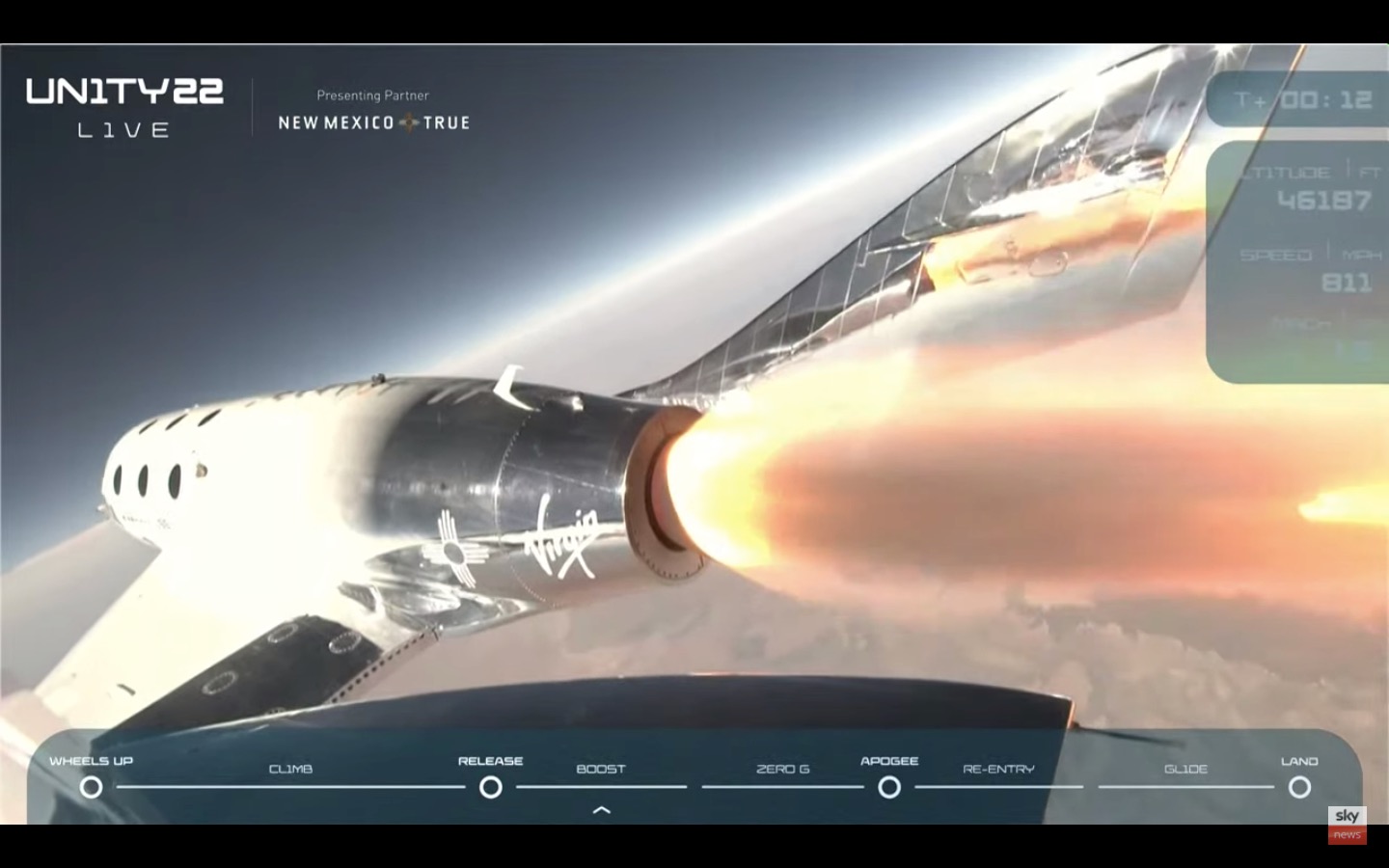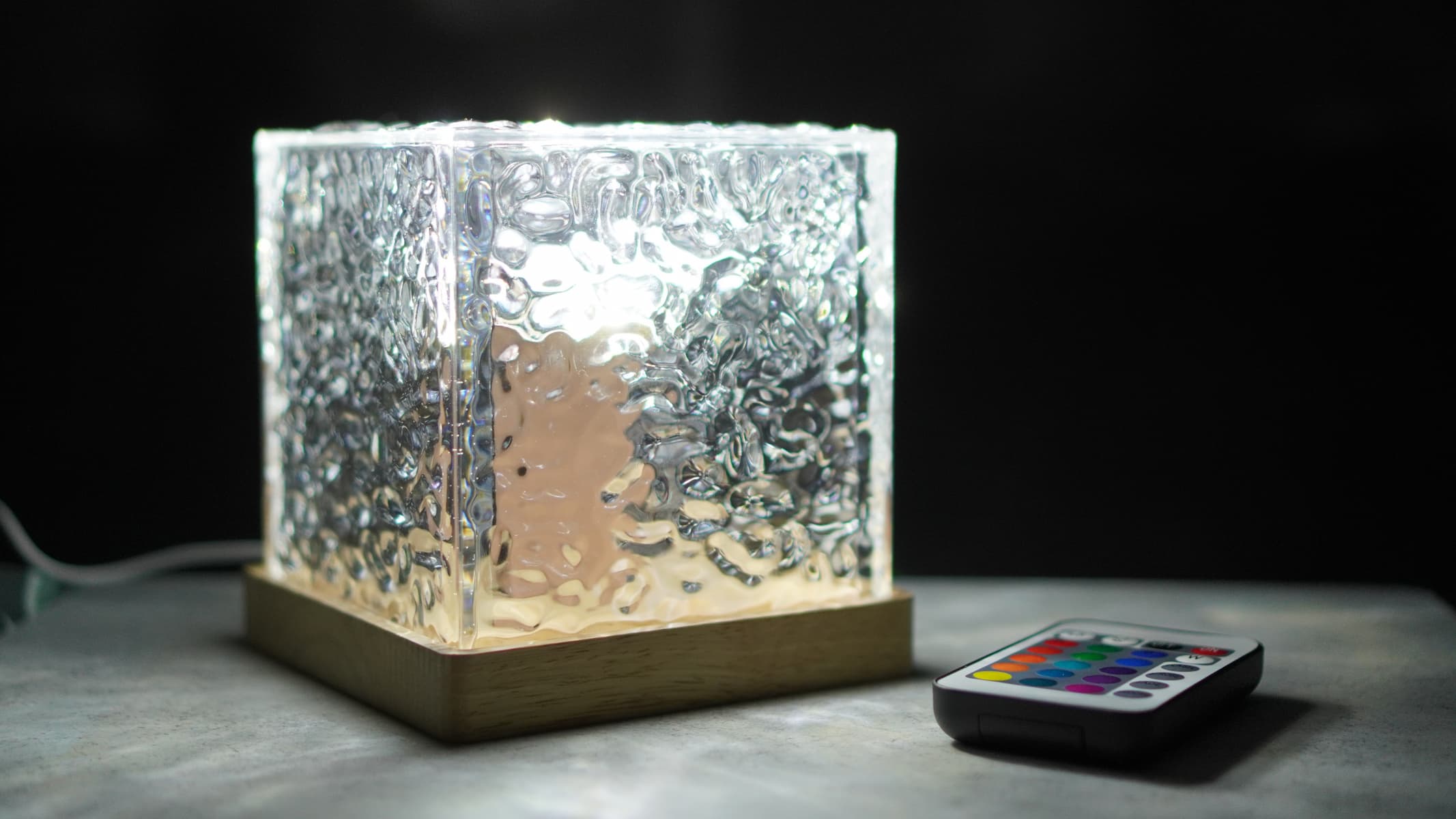
Virgin Galactic has pushed its next mission back a bit to investigate a possible manufacturing defect that might affect its VSS Unity space plane.
The upcoming flight, known as Unity 23, will carry members of the Italian Air Force to and from suborbital space. Virgin Galactic had been targeting late September or early October for Unity 23, but that window has now closed.
"During preparation for the Unity 23 test flight, a third-party supplier recently flagged a potential manufacturing defect in a component of the flight control actuation system that they supply to Virgin Galactic," Virgin Galactic representatives said in a statement on Friday (Sept. 10).
"At this point, it is not yet known whether the defect is present in the company's vehicles and what, if any, repair work may be needed," the statement reads. "Out of an abundance of caution, and in line with Virgin Galactic's established safety procedures, the company is in the process of conducting inspections in partnership with the vendor."
In photos: Virgin Galactic's 1st fully crewed spaceflight with Richard Branson
The earliest conceivable liftoff for Unity 23 is mid-October at this point, Virgin Galactic representatives said. They did not name the vendor that supplies the component in question.
The defect issue isn't the only hurdle Virgin Galactic needs to clear before it launches again. During its most recent space mission, a landmark July test flight whose passengers included Virgin Group founder Richard Branson, VSS Unity flew outside its designated airspace for 101 seconds, as Nicholas Schmidle reported earlier this month in The New Yorker. The U.S. Federal Aviation Administration is investigating what happened on the flight and has effectively grounded VSS Unity until that inquiry wraps up, as Schmidle has noted.
Get the Space.com Newsletter
Breaking space news, the latest updates on rocket launches, skywatching events and more!
The current defect issue is unrelated to the events of the July test flight, Virgin Galactic representatives said.
The six-passenger, two-pilot VSS Unity takes off beneath the wings of a carrier plane known as VMS Eve. At an altitude of about 50,000 feet (15,000 meters), Eve drops Unity, and the rocket plane then makes its own way to suborbital space.
Passengers experience three to four minutes of weightlessness and see the curve of Earth against the blackness of space, an experience that Virgin Galactic is currently selling for $450,000 per seat.
VSS Unity has reached space four times to date, all on test flights. Unity 23 will be its final flight for a while. After that mission is over, Virgin Galactic plans to perform extensive maintenance and upgrade work on Eve, which is expected to sideline the carrier plane until the middle of next year.
Mike Wall is the author of "Out There" (Grand Central Publishing, 2018; illustrated by Karl Tate), a book about the search for alien life. Follow him on Twitter @michaeldwall. Follow us on Twitter @Spacedotcom or Facebook.
Join our Space Forums to keep talking space on the latest missions, night sky and more! And if you have a news tip, correction or comment, let us know at: community@space.com.

Michael Wall is a Senior Space Writer with Space.com and joined the team in 2010. He primarily covers exoplanets, spaceflight and military space, but has been known to dabble in the space art beat. His book about the search for alien life, "Out There," was published on Nov. 13, 2018. Before becoming a science writer, Michael worked as a herpetologist and wildlife biologist. He has a Ph.D. in evolutionary biology from the University of Sydney, Australia, a bachelor's degree from the University of Arizona, and a graduate certificate in science writing from the University of California, Santa Cruz. To find out what his latest project is, you can follow Michael on Twitter.
